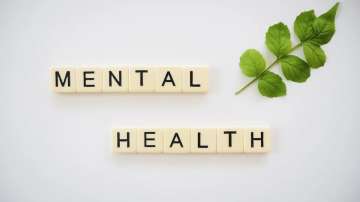World Mental Health Day is observed globally on October 10 to raise awareness about mental health education, awareness, and advocacy against social stigma. The pandemic, in particular, has highlighted the need for coping strategies to deal with lockdowns, extended isolation, stress, and uncertainty at an unprecedented time.
The advent of COVID-19 also turned the world of academics upside down with classes going online and kids being cooped up indoors. Parents had to cope with work and the educational needs of their children and families had to deal with multiple anxieties on a daily basis.
Educationist Rajesh Bhatia, Founder, and CEO of Treehouse Education says, “On this Mental Health Day, let us not forget how much stress our children have gone through during this time. They stayed indoors during the lockdown, were cut off from activities that define childhood, and had to suddenly connect with their peers and teachers on a computer screen.”
Rajesh who runs Treehouse Online Preschool however found ways to engage not just children but their parents in a holistic educational model that tried to compensate for brick and mortar classrooms, playgrounds, and group activities.
Rajesh said, “We incorporated activities that helped children channel their physical energy, curiosity, and the need to socialise. We designed modules that included not just conventional learning but encouraged exploration of the immediate physical environment. We engaged parents too so that they could bond with their kids over music, art, dance, storytelling rather than just worry about learning milestones.”
"As schools open up children will go through stress again as now they have to renegotiate their relationship with the world and possibly stick to a mask mandate and social distancing protocol. There is nothing normal about this new reality because they can no longer just be children, or socialise and learn with complete freedom.", he added.
To make this transition as seamless as possible, he advised, educators and parents will have to be counselled to prepare children for what lies ahead. Says Rajesh, “I read recently that the WHO has found a fifth of children and adolescents worldwide suffering from mental illness. In India, these numbers are even more distressing because nearly 10-15 percent of teens aged 16 or below suffer from a diagnosable psychiatric disorder. Every day, we read about young people dying by suicide and these numbers are too high to be ignored.
Also read: Study finds children who eat more fruit, vegetables have better mental health
Educators he believes need to be sensitised to the psychological needs of their students, be aware of the red flags, and work with parents to create a safe space for children, preteens, and adolescents to express themselves.
Also read: Children and Mental Health: How to know if your child is going through some mental health issues?
As he says, “We can all make a difference to how the young perceive the world. And we should do all we can to meet their mental wellness needs.”
